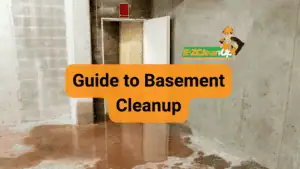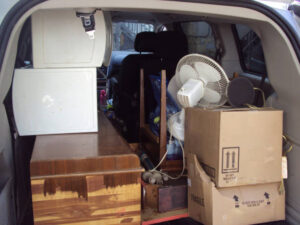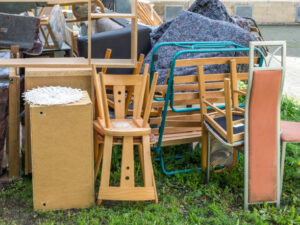Home renovations are exciting endeavors that transform living spaces and increase property value. However, one critical aspect that homeowners often overlook is proper waste management. According to the EPA, the average renovation produces around 60 pounds of waste per square foot, making junk removal an essential component of any successful renovation project.
Understanding Construction and Demolition Waste
The EPA estimated that 600 million tons of construction and demolition (C&D) debris were generated in the United States in 2018, representing a massive environmental challenge. When undertaking a home renovation, you’re contributing to this waste stream—but with proper planning and professional junk removal services, you can minimize your environmental impact while streamlining your project.
Common Types of Renovation Waste
Renovation projects generate various types of debris that require different handling methods:
- Wood materials: Framing lumber, flooring, trim, and cabinetry
- Drywall and plaster: One of the most voluminous waste materials
- Concrete and masonry: Heavy materials including bricks, concrete blocks, and rubble
- Metals: Copper wiring, steel beams, aluminum fixtures, and hardware
- Roofing materials: During a common renovation process such as re-roofing, the average U.S. home can generate around 3-4 tonnes of tear-off waste, with more than 90% of used asphalt shingles ending up in landfills
- Hazardous materials: Lead paint, asbestos, and chemical waste requiring specialized disposal
Why Professional Junk Removal is Essential for Renovations
1. Time and Efficiency Savings
One of the most significant advantages of hiring a professional junk removal service is the time saved, as renovations typically require tight schedules and any delay can extend the timeline of the entire project, especially when the sheer volume of junk can quickly overwhelm you.
Professional teams arrive with the proper equipment—trucks, dumpsters, and tools—to handle large volumes of waste efficiently, allowing you to focus on design decisions and project coordination rather than debris hauling.
2. Enhanced Safety on Job Sites
Renovation sites can be dangerous environments. Piles of debris can include sharp objects, nails, and other hazardous materials that pose a risk of injury, and by regularly removing these hazards, the likelihood of accidents and injuries on the job site is reduced.
Professional junk removal companies understand proper handling techniques for heavy materials, reducing the risk of back injuries, cuts, and other accidents that commonly occur during DIY debris removal.
3. Proper Disposal and Environmental Responsibility
Not all renovation waste belongs in a landfill. Professional junk removal services understand which materials can be recycled, donated, or repurposed. They work with local recycling facilities and donation centers to divert as much waste as possible from landfills.
Materials commonly recycled from renovation projects include:
- Metals (copper, steel, aluminum)
- Clean wood (can be processed into mulch or biomass fuel)
- Concrete and masonry (crushed for aggregate)
- Drywall (recycled into new drywall or used as soil amendment)
- Cardboard packaging
4. Regulatory Compliance
Many jurisdictions require construction waste management plans for renovations, specifying proper handling of hazardous materials, minimum recycling requirements, and documentation of disposal methods. Professional junk removal companies are familiar with local regulations and ensure your project remains compliant, helping you avoid fines and legal issues.
5. Cost-Effectiveness
While hiring professional junk removal services involves upfront costs, it often proves more economical than DIY approaches when you consider:
- Multiple trips to disposal facilities
- Truck or trailer rental costs
- Potential disposal fees
- Time away from work or other responsibilities
- Risk of injury and associated medical costs
Junk Removal Methods for Home Renovations
Roll-Off Dumpster Rentals
Roll-off dumpsters serve as temporary on-site waste solutions, coming in various sizes typically from 10 to 40 cubic yards, with most home renovations needing a 20-yard container, and rental periods usually span a week though extensions are typical.
Best for: Large-scale renovations, whole-house remodels, or projects with continuous waste generation over several days or weeks.
Full-Service Junk Removal
Professional junk hauling companies provide comprehensive services where teams arrive, sort, load, and transport all debris. This hands-off approach is ideal for homeowners who want convenience and don’t have time to manage waste disposal themselves.
Best for: Busy homeowners, smaller renovation projects, or situations where heavy lifting would be difficult or dangerous.
DIY Disposal
For minor renovations with minimal waste, you might consider hauling debris yourself to local recycling centers or transfer stations. However, this requires significant time, a suitable vehicle, and knowledge of what materials each facility accepts.
Best for: Very small projects with limited, lightweight debris and homeowners with plenty of time and appropriate transportation.
Planning Your Renovation Waste Management Strategy
Before Starting Your Project
- Assess the scope: Evaluate which areas you’re renovating and estimate waste volume
- Identify materials: Determine what types of debris will be generated
- Research local regulations: Understand disposal requirements in your area
- Schedule removal services: Book junk removal or dumpster rental in advance
- Set up sorting areas: Designate spaces for recyclables, donations, and trash
During Your Renovation
- Maintain organized waste separation
- Schedule regular pickups to prevent debris accumulation
- Keep walkways and work areas clear for safety
- Document disposal for compliance purposes
- Communicate with your contractor about waste management responsibilities
After Project Completion
Professional junk removal services can handle final cleanup, ensuring your newly renovated space is pristine and ready to enjoy without lingering debris or packaging materials.
The Environmental Impact of Responsible Junk Removal
Home remodeling waste accounts for 22% of all construction and demolition debris generated in the US according to the EPA, and it’s disappointing that 30% of landfill waste originates from construction projects including home renovation endeavors.
By choosing professional junk removal services that prioritize recycling and responsible disposal, you can significantly reduce your renovation’s environmental footprint. Many materials that would otherwise end up in landfills can be:
- Recycled into new products (metals, concrete, wood)
- Donated to organizations like Habitat for Humanity ReStore
- Repurposed for other construction projects
- Composted (clean wood chips, certain organic materials)
Choosing the Right Junk Removal Service
When selecting a junk removal company for your renovation project, consider:
- Licensing and insurance: Ensure the company is properly credentialed
- Environmental practices: Ask about recycling and donation policies
- Pricing transparency: Get clear quotes with no hidden fees
- Equipment and capacity: Verify they can handle your project size
- Reviews and reputation: Check online reviews and ask for references
- Availability: Confirm they can work within your renovation timeline
Conclusion
Professional junk removal services play an indispensable role in home renovation projects, offering far more than simple trash hauling. From ensuring worker safety and regulatory compliance to protecting the environment through responsible disposal practices, these services streamline the renovation process while allowing homeowners to focus on creating their dream spaces.
By partnering with experienced junk removal professionals, you can ensure your renovation project proceeds efficiently, safely, and responsibly—transforming your home while minimizing stress and environmental impact.
References
- U.S. Environmental Protection Agency. (2025). “Sustainable Management of Construction and Demolition Materials.” https://www.epa.gov/smm/sustainable-management-construction-and-demolition-materials
- Visual Capitalist. (2022). “How Much Waste Does a Renovation Create?” https://www.visualcapitalist.com/sp/how-much-waste-does-a-renovation-create/
- Imagineer Remodeling. (2021). “How to Reduce Waste When Remodeling Your Home.” https://imagineerremodeling.com/how-to-reduce-waste-when-remodeling-your-home/
- 123JUNK. (2025). “Dispose of Renovation Debris Right.” https://123junk.com/blog/how-to-dispose-of-construction-debris/
- This Old House. (2024). “Debris Disposal 101: A Guide To Managing Renovation Waste.” https://www.thisoldhouse.com/green-home/21015481/debris-disposal-101













